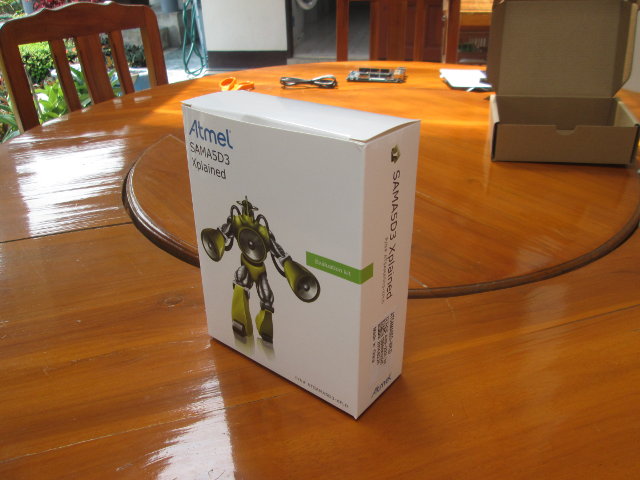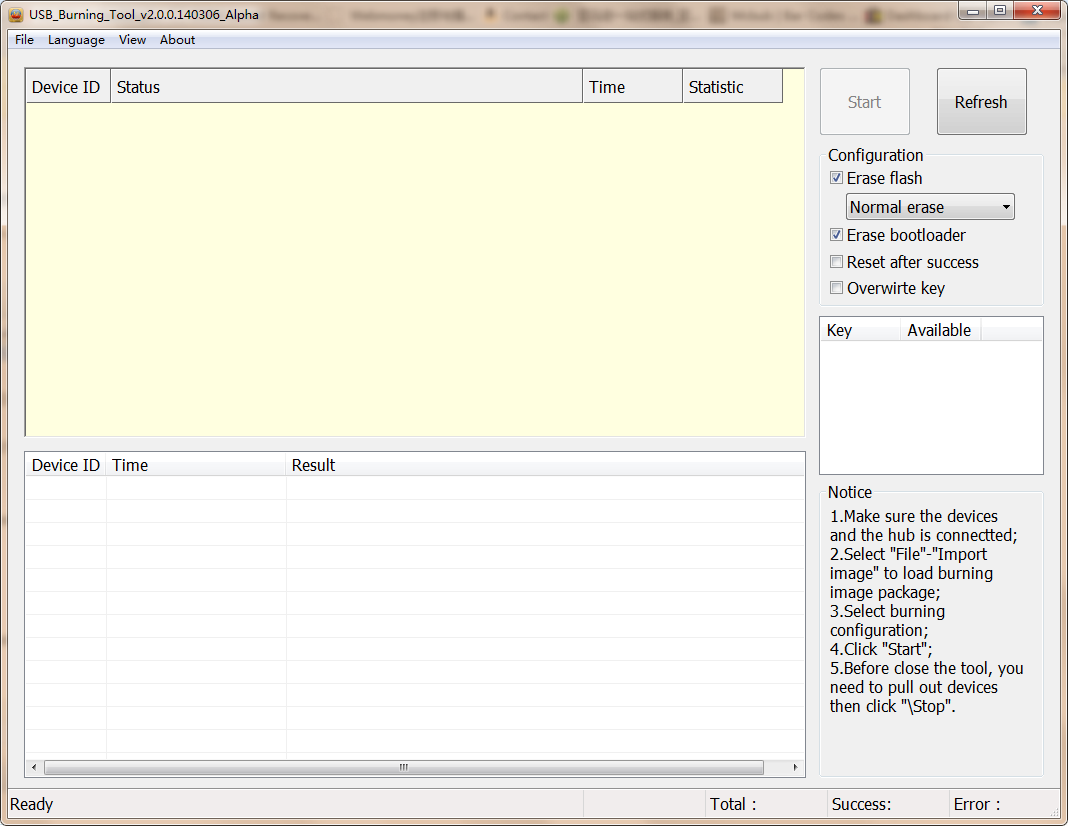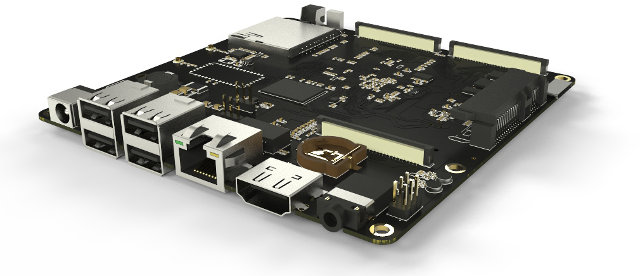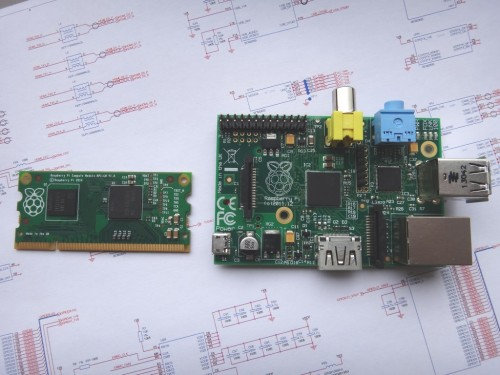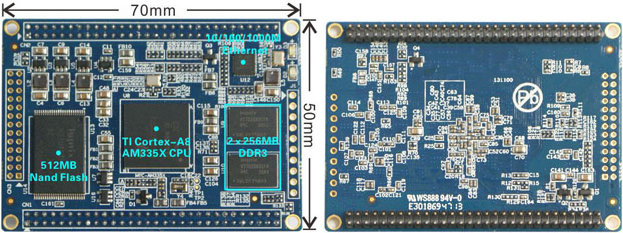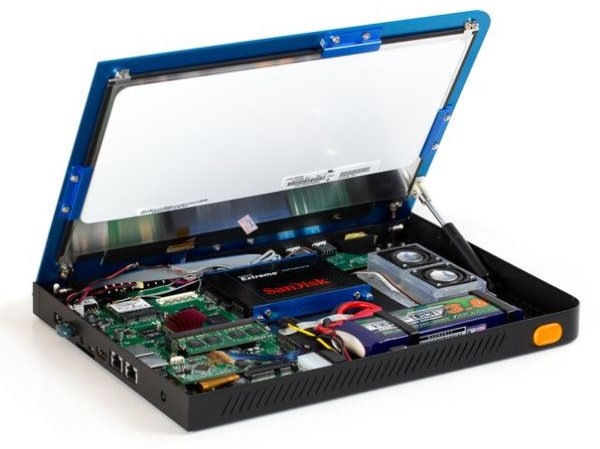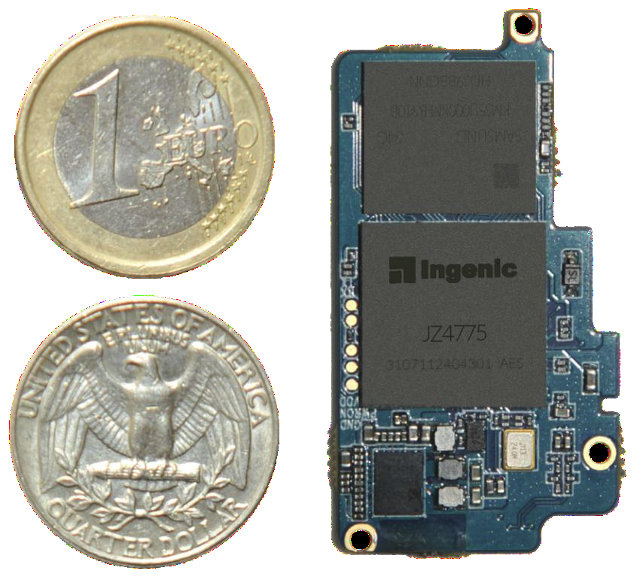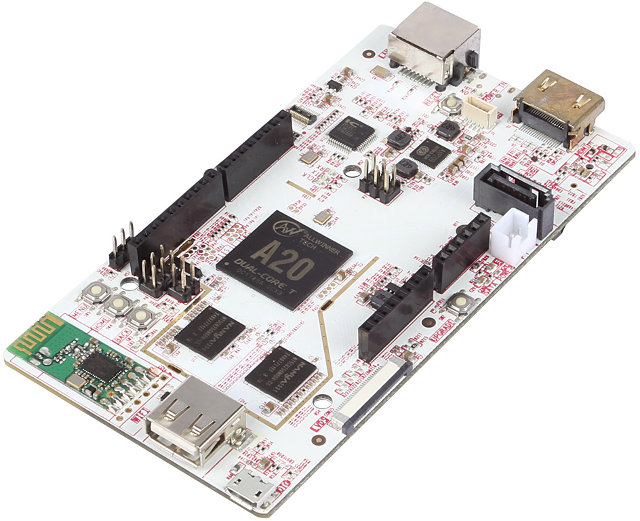Atmel SAMA5D3 Xplained is an evaluation board running Linux powered by SAMA5D36 ARM Cortex A5 micro-processor with 256 MB DDR2, 256 MB flash, two Ethernet ports, 3 USB connectors, and more. This embedded board targets industrial automation, networks, robotics, control panels and wearable applications. The only video output is an LCD connector so it is reserved for headless or flat panel based applications. You can check full specs on my Atmel SAMA5D3 Xplained announcement post. The company kindly sent me a sample, so that I can share my experience with the board. I’ll first post some unboxing pictures, show how to get started with the pre-installed image, and build my own Linux image. The board can be purchased for $79 from Atmel e-Store, as well as several distributors (P/N: ATSAMA5D3-XPLD). Atmel SAMA5D3 Xplained Unboxing I’ve been sent the board via DHL in the following package, which gives a short desscription […]
How to Upgrade Firmware in Amlogic S802 Devices
Shenzhen Tomato has finally sent me an updated firmware (password: 17r0) for M8 / TM8 Android TV box powered by Amlogic S802. This firmware is rooted, and adds support for Google Apps (Play Store, Gmail and so on), among others things. So it’s a good time to try out and write about the firmware update instructions which are very similar to AML8726-MX firmware instructions. Bear in mind that firmware is usually specific to a given hardware platform, and if you try it on another non-compatible S802 TV box, you may brick your device. Standard “OTA” Method Any Windows, Mac OS, Linux computer or even your own Android device should be able to handle is as you just need to download, extract and copy files to an SD card. I’ve done the procedure from a computer running Ubuntu 13.04: Download the firmware (e.g. TM8 ap6330_03102014A_0410_ROOT.rar), and extract it Copy the files […]
Mixtile LOFT-Q Board and LOFT Kit mini PC Powered by AllWinner A31
Recently most development around AllWinner, at least for Linux, is focusing on AllWinner A20, and there are several AllWinner A20 board and development platforms available on the market such as Cubieboard2, A20-OLinuXino, IBOX and more. But apart from the team at Free Electrons, few people seem to be working on AllWinner A31, so there are few development platform available, if we exclude consumer products such as tablets and Android TV Boxes. There’s now an AllWinner A31 development board thanks to Mixtile LOFT-Q board, which also comes in LOFT Kit to make a complete mini PC with enclosure. Mixtile LOFT-Q specifications: SoC – Allwinner A31 quad core ARM Cortex-A7 processor with PowerVR SGX544 MP2 GPU System Memory – 2GB 64-bit DDR3 Storage – 8GB eMMC (ver 4.51), SATA III connector for 2.5″ drives, and SD card Slot Video Output – HDMI 1.4 up to 1080p Audio I/O – HDMI, 1 headphone/TOSLINK […]
Raspberry Pi Compute Module is a $30 Raspberry Pi Compatible System-on-Module
Albeit the initial goal of the Raspberry Pi board was to address computer science education, it has become extremely popular with hobbyists, has made its way in many different kinds of hardware, and is now clearly the number 1 low cost ARM Linux development board. The Raspberry Pi foundation has then decided to design and sell a system-on-module called Raspberry Pi Compute that people can use in actual products. Since the module will be mostly software compatible with the original Raspberry Pi board, the specs are similar: SoC – Broadcom BCM2835 ARM 11 processor @ 700 MHz with Videocore IV GPU System Memory – 512MB RAM Storage – 4GB eMMC Flash SoM Connector – DDR2 200-pins SODIMM Dimensions – 67.6x30mm board which fits into a standard DDR2 SODIMM connector The main difference is they’ve replaced the SD card slot found in the board, by an eMMC module which is more […]
MYIR MYD-AM335X Development Boards & MYC-AM335X CPU Modules
MYIR has recently introduced MYD-AM335X development boards and MYC-AM335X CPU modules powered by Texas Instruments Sitara AM335x ARM Cortex A8 SoCs, (AM3352, AM3354, AM3356, AM3357, AM3358, and AM3359) that come with 512 MB RAM, 512 MB Flash, and a Gigabit Ethernet PHY. The boards and modules target home automation, industrial automation, enterprise/educational tablets, portable navigation devices and networking applications. MYC-AM335X CPU Modules MYC-AM335X CoM specifications: SoC – Texas Instruments AM3352, AM3354, AM3356, AM3357, AM3358, AM3359 ARM Cortex-A8 up to 1GHz with SGX530 GPU (AM3354/AM3358/AM3359 only) System Memory – 512MB DDR3 SDRAM Storage – 512MB NAND Flash Connectivity – On-board Gigabit Ethernet PHY Headers: 2x 2.0mm pitch 60-pin expansion connectors to connect the SoM to a baseboard with the following signals: 2x USB2.0 OTG ports, 6x Serial ports, 2x I2C, 1x SPI, 7x ADC, 2x PWM, 3x SDIO 1x 2.0mm pitch 26-pin expansion interface 1x 2.54mm pitch 10-pin expansion interface Misc – […]
Novena Open Source Hardware ARM Laptop Gets Crowdfunded for $1995
In 2012, Andrew Huang (“Bunnie”) decided to build an open source hardware and software laptop codenamed Novena powered by Freescale i.MX6 as a side project. The goal of the project was to be fully open source, both in terms of hardware and software, and the components have been selected so that the datasheets can be downloaded without NDA. Design has now been completed, and a crowdfunding campaign has now been launched on Crowd Supply, but since finding low cost part was not priority, you’ll have to fork $1,995 to get the complete laptop, $1,195 will get you the desktop version, and $500 the motherboard only. There’s also a version of the laptop called “Heirloom Laptop” with a hand-crafted wood and aluminum case that goes for $5,000. Let’s go through the board specs first: SoC – Freescale iMX6 Quad-core Cortex A9 CPU with NEON FPU @ 1.2 GHz. – NDA-free datasheet […]
Ingenic Newton Platform for Wearables is Powered by MIPS Based JZ4775 SoC
Imagination Technologies has published a blog post about Newton, a tiny reference design for wearables based on Ingenic JZ4775 MIPS SoC found in some recent smartwatches such as SmartQ Z1 (The CPU not the module). This module targets wearables, IoT, healthcare, home appliances, security, industrial control, consumer electronics and more. Newton Specifications: SoC – Ingenic JZ4775 MIPS Xburst processor @ 1 GHz with 2D GPU, and VPU supporting 720p@30fps for MPEG-2, MPEG-4, VC-1, H.264, VP8, and RV9 codecs. System Memory – Up to 3GB mobile DDR3/DDR2/LPDDR1 Storage – Up to 32 GB eMCP eMMC flash Display Support – LCD or EPD, with touch panel and backlight Audio – Digital MIC and Speaker Connectivity – 4-in-1 combo with Wi-Fi (802.11 a/b/g/n at 2.4/5 GHz), Bluetooth 4.0 + EDR (including Bluetooth LE support), NFC, and FM Sensors – 3-axis gyroscope, accelerometer magnetometer, pressure, humidity and temperature, bio-signal detection and processing USB – USB […]
pcDuino3 Development Board Features AllWinner A20 SoC, Arduino Headers
The first pcDuino board powered by AllWinner A10 has been available for about a year, later last year pcDuino V2 was released with a built-in Wi-Fi modules and mechanically and software compatible Arduino headers, and now pcDuino3 has been announced in a form factor similar to pcDuino V2 board but replacing AllWinner A10 Cortex A8 SoC with AllWinner A20 dual core Cortex A7, and improving overall specs such as faster Ethernet, the addition of a SATA port, and LiPo support. pcDuino3 specifications: SoC – AllWinner A20 dual core ARM Cortex A7 @ 1.0 GHz, with Mali 400MP2 GPU System Memory – 1GB DRAM Storage – 4GB NAND Flash, SATA connector, and microSD card slot (up to 32GB) Video Output – HDMI 1.4 with HDCP support, LVDS header Audio Out – 3.5mm analog audio interface, I2S stereo digital audio interface Connectivity – WiFi, 10/100M Ethernet USB – 1x USB host, 1x […]


